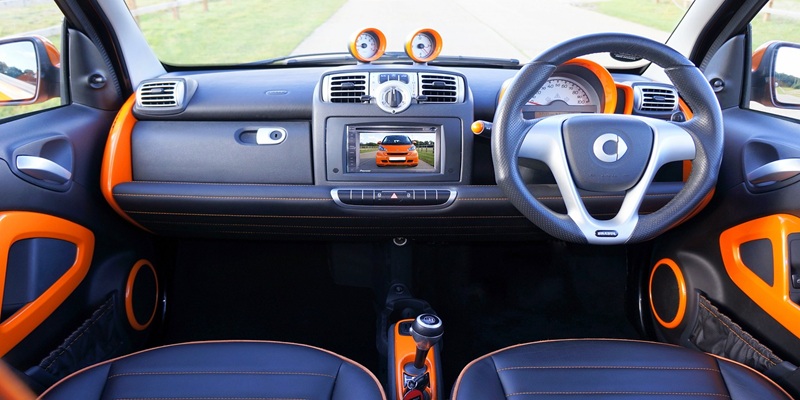The automotive industry is undergoing a massive transformation, thanks to advancements in smart technology and financial technology (fintech). Smart cars, equipped with AI, IoT, and autonomous driving capabilities, are no longer just about transportation—they are becoming financial hubs on wheels. Fintech is playing a crucial role in reshaping how we interact with vehicles, from seamless payments to usage-based insurance. But how exactly is fintech disrupting smart cars? What does this mean for consumers, manufacturers, and financial institutions?.
The Rise of Smart Cars and Fintech Integration
Smart cars are no longer a futuristic concept—they are here, and they are evolving rapidly. These vehicles come embedded with advanced sensors, AI-driven navigation, and real-time connectivity. However, one of the most groundbreaking developments is the integration of fintech solutions.
Fintech is revolutionizing the way we pay for services related to smart cars. For instance, electric vehicle (EV) charging stations now support automatic payments via digital wallets. Similarly, toll payments, parking fees, and even in-car purchases are becoming cashless, thanks to embedded fintech solutions.
Moreover, smart cars are generating vast amounts of data, which fintech companies leverage to offer personalized financial products. Usage-based insurance (UBI), for example, uses telematics to adjust premiums based on driving behavior. This not only benefits consumers with fairer pricing but also helps insurers mitigate risks.
Key Fintech Innovations in Smart Cars
Embedded Payments and Digital Wallets
Gone are the days of fumbling for cash or cards at toll booths and parking lots. Smart cars now come with built-in payment systems that allow for seamless transactions. Companies like Tesla and BMW are integrating digital wallets, enabling drivers to pay for services directly from their dashboards.
Additionally, blockchain technology is making these transactions more secure. With decentralized ledgers, payment fraud is significantly reduced, ensuring safer financial interactions for drivers.
Usage-Based Insurance (UBI)
Traditional car insurance relies on generalized risk assessments, often leading to unfair premiums. Fintech is changing this through UBI, which uses real-time data from smart cars to determine insurance costs.
By analyzing driving patterns—such as speed, braking habits, and mileage—insurers can offer personalized rates. Safe drivers benefit from lower premiums, while risky behaviors lead to higher costs. This model promotes safer driving and creates a more equitable insurance landscape.
Subscription-Based Car Ownership
The concept of car ownership is shifting. Instead of purchasing vehicles outright, consumers are embracing subscription models. Fintech platforms enable flexible payment plans, allowing users to pay monthly fees for access to different car models.
Companies like Volvo and Porsche already offer subscription services, bundling maintenance, insurance, and roadside assistance into one payment. This approach reduces upfront costs and provides greater flexibility for drivers.
Peer-to-Peer (P2P) Car Sharing
Fintech is also fueling the growth of P2P car-sharing platforms. Apps like Turo and Getaround allow car owners to rent out their vehicles when not in use. Smart car technology ensures secure access, while fintech handles payments and insurance automatically. This model not only generates extra income for car owners but also promotes sustainable vehicle usage by reducing the need for personal car ownership.
Challenges and Risks in Fintech-Driven Smart Cars
While the fusion of fintech and smart cars presents exciting opportunities, it also comes with challenges.
Data Privacy Concerns
Smart cars collect vast amounts of personal and financial data. If not properly secured, this information could be vulnerable to cyberattacks. Fintech companies and automakers must prioritize robust encryption and compliance with data protection laws like GDPR.
Regulatory Hurdles
The fast transformation of fintech in smart cars has outpaced regulations. Governments worldwide are still catching up, creating uncertainty around compliance standards. Clear policies are needed to ensure consumer protection without stifling innovation.
Cybersecurity Threats
Connected cars are potential targets for hackers. A breach could compromise payment systems or even vehicle controls. Fintech and automotive firms must invest in advanced cybersecurity measures to prevent such risks.
The Future of Fintech in Smart Cars
The integration of fintech and smart cars is still in its early stages, but the potential is enormous. Here’s what we can expect in the coming years:
Autonomous Payments
Self-driving cars will handle transactions autonomously. Imagine your car paying for fuel, parking, or maintenance without any human input. AI-driven systems will manage these payments efficiently, further reducing friction.
Tokenization of Vehicle Assets
Blockchain could enable fractional ownership of vehicles through tokenization. Investors might buy shares in a car, earning returns based on usage. This could democratize car investments and create new financial opportunities.
AI-Powered Financial Assistants
Smart cars may soon come with AI-driven financial advisors. These systems could analyze spending habits, suggest insurance plans, or even help with budgeting—all while you drive.
Final Thoughts
Fintech is undeniably transforming the smart car industry, making transactions smoother, insurance fairer, and ownership more flexible. However, as with any innovation, challenges like data security and regulation must be addressed.
For consumers, this means more convenience and cost savings. For businesses, it opens new revenue streams and customer engagement opportunities. The road ahead is exciting, and those who embrace these changes early will reap the greatest benefits. Are you ready for the fintech-driven future of smart cars? Stay informed, stay secure, and enjoy the ride!



































